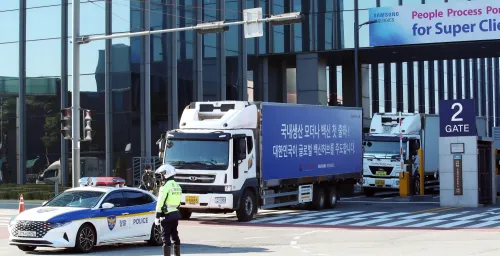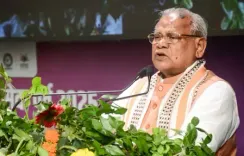Has Elon Musk’s Starlink Finally Launched Satellite Internet Services in Sri Lanka?

Synopsis
Key Takeaways
- Starlink has launched satellite internet services in Sri Lanka.
- Sri Lanka is the third South Asian country to access Starlink’s services.
- The company is closer to launching in India, pending formal approval.
- Starlink offers high-speed internet suitable for remote areas.
- Globally, Starlink serves users in over 100 countries.
New Delhi, July 2 (NationPress) Starlink, the satellite internet platform founded by Elon Musk, has officially commenced its services in Sri Lanka as of Wednesday.
This development makes Sri Lanka the third nation in South Asia—following Bhutan and Bangladesh—to gain access to Starlink's internet offerings.
The announcement was shared by Starlink on the social media platform X, stating: "Starlink's high-speed, low-latency internet is now available in Sri Lanka!"
Starlink is on the verge of launching its services in India. Last month, the company secured a crucial license from the Department of Telecommunications (DoT), nearly three years after its initial application.
Reports suggest that Starlink could potentially start its services in India within the next two months.
The essential step for Starlink to kick off operations in India is obtaining formal approval from the Indian National Space Promotion and Authorisation Centre (IN-SPACe).
The agency has already provided a draft letter of intent (LOI) to the company. Once this document is signed by both parties, Starlink will be officially authorized to launch its services in the Indian market.
Starlink delivers internet through a constellation of satellites orbiting the Earth. Currently, it boasts the world's largest cluster of satellites, with over 6,750 in orbit.
According to the company, Starlink provides high-speed internet with minimal latency, making it a great fit for remote regions that typically experience connectivity challenges.
In Asia, Starlink services are already accessible in numerous countries, including Mongolia, Japan, the Philippines, Malaysia, Indonesia, Jordan, Yemen, and Azerbaijan.
Globally, it caters to users in over 100 countries, providing both residential and roaming internet packages.
The residential plans are generally divided into two categories: Residential Lite for smaller households with lower data requirements, and Residential for larger families or heavier internet users.









